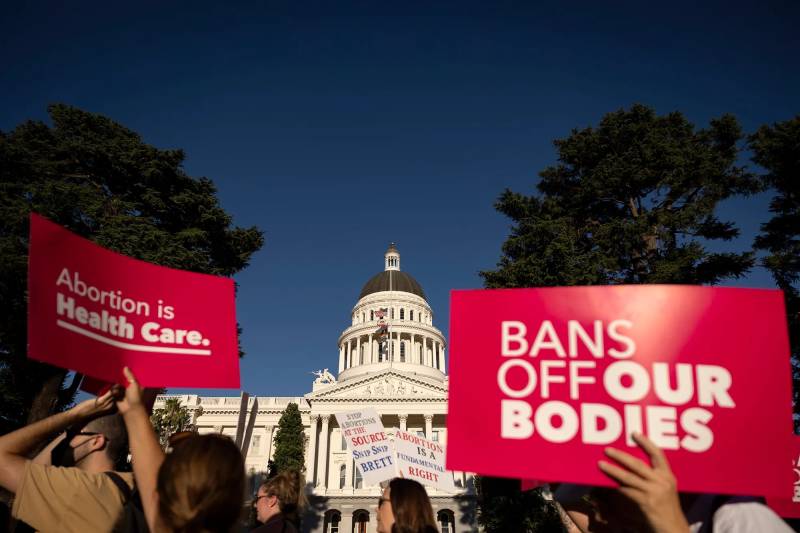“No matter how many lawsuits they file or challenges they bring, they cannot change the facts: mifepristone is safe and effective,” Bonta said in a statement.
Since the Supreme Court decision overturning the right to an abortion, California has strengthened abortion rights and welcomed patients from states that have prohibited the procedure. Most recently, Newsom signed a law granting abortion providers from Arizona an expedited licensing pathway in California.
Alliance Defending Freedom, the group representing the plaintiffs in the abortion pill case, said in a statement that it would continue the legal battle. A lower court judge has already ruled that three states — Idaho, Missouri and Kansas — can join the case as plaintiffs. Legal experts say states often have a stronger standing argument because they have to provide access to health care services.
“While we’re disappointed with the court’s decision, we will continue to advocate for women and work to restore commonsense safeguards for abortion drugs — like an initial office visit to screen for ectopic pregnancies. And we are grateful that three states stand ready to hold the FDA accountable for jeopardizing the health and safety of women and girls across this country,” Erin Hawley, senior counsel for the group, said in a statement.
Abortion pill access
Medication abortion is the most commonly used abortion method, accounting for nearly two-thirds of all U.S. abortions, according to the Guttmacher Institute, a national reproductive health policy center advocating for abortion rights.
Mifepristone, the pill at the heart of the Supreme Court decision, is part of a two-drug regimen for medication abortion. It halts pregnancy by blocking the hormone progesterone before the second drug, misoprostol, empties the uterus by causing it to contract.
The FDA approved mifepristone in 2000 and made it easier to access in 2021 when the COVID-19 pandemic made in-person dispensing requirements impossible. It is now used in nearly all medication abortions.
Cathren Cohen, a staff attorney with the UCLA Center on Reproductive Health, Law and Policy, said a ruling against the FDA could have had a destabilizing effect on all pharmaceuticals.
“The court, they’re not scientists, so for them to be second-guessing the people with actual authority, which is the FDA, that’s concerning,” Cohen said.
The center submitted an amicus brief to the Supreme Court on behalf of 300 reproductive health researchers detailing mifepristone’s safety record. Dozens of studies have demonstrated its safety and efficacy.
Recently, researchers from UCSF’s Bixby Center for Global Reproductive Health conducted the largest study of telehealth abortions and found that medication abortions obtained via telehealth appointments are just as safe as those obtained through in-person medical care, with 98% of patients completing the abortion without needing additional medical care.
Last year, Newsom announced the state would stockpile misoprostol, the second drug in the medication abortion regimen, in case the Supreme Court decision resulted in a shortage. That stockpile has since been depleted, and it was not immediately clear whether the state would replenish it.
Misoprostol can be safely used alone for abortions but is more likely to have side effects when not paired with mifepristone, studies show. Both drugs are also commonly used to manage miscarriages.
Supported by the California Health Care Foundation (CHCF), which works to ensure that people have access to the care they need, when they need it, at a price they can afford. Visit www.chcf.org to learn more.

